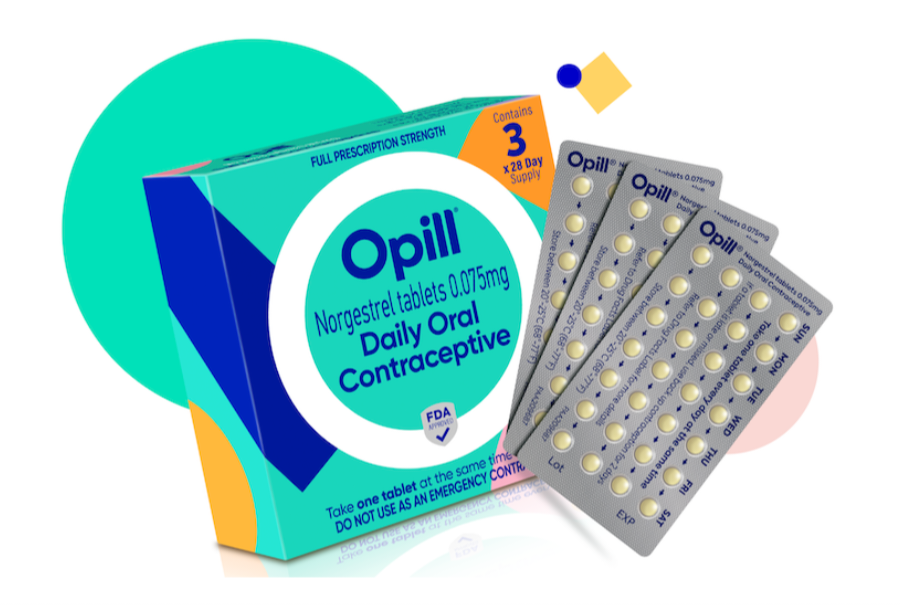First Over-the-Counter Birth Control Pill Has Been Approved by the FDA

The progestin-only pill will be available for purchase in stores and online in early 2024.
Since the Supreme Court of the United States (SCOTUS) overturned Roe v. Wade in June of 2022, reproductive health rights have been under attack across the country. In the nearly 13 months since the constitutional right to access a safe abortion was taken away, 14 states have completely banned abortions (with only four of these states offering exceptions for rape and three for incest), one has banned abortions after six weeks gestation, two have banned abortions after 12 weeks gestation, and one after 18 weeks gestation. Four other states also passed similar bans, but the measures were later blocked by courts.
Given that nearly half of all states have passed laws—most of which successfully—restricting this necessary life-saving form of health care, access to effective birth control is more important than ever. Thankfully, on July 13, 2023, the U.S. Food and Drug Administration (FDA) officially approved the country’s first over-the-counter (OTC) oral contraceptive, Opill, which will be available in drugstores nationwide in early 2024.
What Is Opill?
Opill (a name brand for the generic norgestrel) is an oral contraceptive pill manufactured by Perrigo, a company based in Dublin, Ireland. The first birth control pill in the U.S. was approved in 1960, and norgestrel, specifically, was originally approved by the FDA in 1973 as a prescription-only medication.
Opill is a hormonal birth control that’s sometimes referred to as a “mini-pill” because it is a progestin-only contraceptive as opposed to a combination pill with both progestin and estrogen (progestin is the synthetic form of the hormone progesterone). Despite their different formulations, progestin-only pills are just as effective as combination pills. However, unlike combination pills, one important benefit of progestin-only pills is that they can be taken immediately after childbirth—including while breastfeeding, offering nursing parents protection against accidental pregnancy (which can happen).
What Are the Benefits of OTC Birth Control Pills?
According to the FDA, of the 6.1 million pregnancies in the U.S. each year, nearly half are unplanned. In their press release, the FDA’s director of the Center for Drug Evaluation and Research, Patrizia Cavazzoni, MD, said, “Daily oral contraception [such as Opill] is safe and is expected to be more effective than currently available nonprescription contraceptive methods in preventing unintended pregnancy.”
OTC birth control is currently available in more than 100 countries throughout the world. As of July 2023, 29 states and Washington D.C. have passed laws allowing in-store pharmacists to prescribe hormonal birth control; however, in 10 states, the laws restrict access to patients 18 years old and up. Still, until Opill is widely available, the only way for sexually active people in this country—regardless of age—to access one of the best forms of protection against unexpected pregnancy is through a prescribing provider, whether it’s a pharmacist, nurse practitioner, physician assistant, or physician.
In 2021, according to the United States Census Bureau, 27.2 million people in the U.S. reported not having health insurance coverage at any point in the year—meaning they would have to pay out of pocket for both a doctor visit and the cost of a prescription in order to access hormonal birth control, which might not be financially possible for many. Even for people who do have health insurance, many providers book weeks—if not months—out, leaving them to resort to alternative, less effective birth control (if any) during the wait. In recent years, there has been a rise in online companies offering birth control prescriptions, such as Nurx and even Planned Parenthood, but they are often limited to certain states due to health care laws. And even if someone is able to access care and medication through one of these online providers, they will still have to take time for an office visit or consultation, which may equate to unpaid time off from work or possibly having to pay for childcare that many simply can’t afford.
By offering contraceptive access OTC, so many of these hurdles are removed for people seeking effective birth control. Picking up a month’s worth of pills will be as simple as picking up a bottle of Tylenol at the local drugstore. In fact, a person won’t even have to step foot into a store if they don’t want to because they’ll have the option to order the medication online to be delivered right to their door. Additionally, at this time, much like emergency contraception, OTC birth control is expected to be available without age restrictions, which is significant for sexually active teenagers.
How Much Will OTC Birth Control Cost?
In its press release, the FDA said Opill’s pricing will be left up to the manufacturer. At this time, Perrigo has not disclosed what they plan to charge for the medication, but Frederique Welgryn, the company’s global vice president for women’s health, said, “Perrigo is committed to making Opill … accessible and affordable to women and people of all ages.” What the company deems “affordable” will become known as we get closer to its release early next year.
Since this is the first time birth control has been available OTC in the U.S., there are no pricing regulations in place just yet. The Affordable Care Act (ACA) requires most insurance companies to cover the cost of prescription birth control completely. However, the rules do not apply to current OTC methods of birth control, such as condoms, diaphragms, and spermicide, but they are often FSA- and HSA-eligible.
That being said, due to the overturning of Roe v. Wade in 2022, President Biden has been diligent in finding ways to make reproductive care—including contraception—more accessible and affordable. In June, he issued an executive order instructing various Secretaries of Office and other federal agencies to research and develop different measures that would make affordable access to OTC birth control widely available. Additionally, in May, U.S. Senators Murray (D-WA), Hirono (D-HI), and Cortez Masto (D-NV) and U.S. House Representatives Pressley (D-MA), Ocasio-Cortez (D-NY), and Bera (D-CA) reintroduced the Affordability is Access Act which would require insurers to cover OTC contraception at no cost.
There are undoubtedly still a lot of unknowns about how OTC hormonal birth control will work in the United States, but the FDA’s approval of Opill is still something to celebrate. While the ultimate goal is to codify the right to safe abortion into law for everyone in the country, we still need to make sure to take time to enjoy the little wins along the way—like this one.
Note: State abortion law data cited in this article is current as of publication. However, this is a constantly evolving situation, so we encourage you to follow changes using the New York Times tracker.








